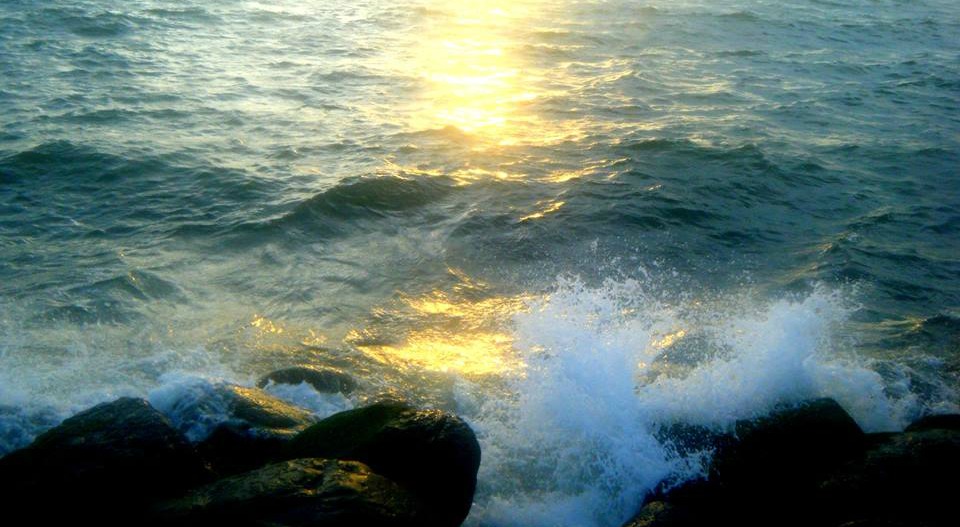Renewable Energy from Coral and Karstic Formation
(
Intergovernmental organization
)
#OceanAction42226
Description
The objective may extend to discoveries of innovative solution in energy generation, conversion and storage within the ocean environment. These may include: study of coral reef and karstic formation, solution to water crisis, solution to carbon pollution in the waters and provision for world coral museum.
SDGS & Targets
Goal 7
Ensure access to affordable, reliable, sustainable and modern energy for all
7.1
By 2030, ensure universal access to affordable, reliable and modern energy services
7.1.1
Proportion of population with access to electricity
7.1.2
Proportion of population with primary reliance on clean fuels and technology
7.2
7.2.1
Renewable energy share in the total final energy consumption
7.3
7.3.1
Energy intensity measured in terms of primary energy and GDP
7.a
7.a.1
International financial flows to developing countries in support of clean energy research and development and renewable energy production, including in hybrid systems
7.b
By 2030, expand infrastructure and upgrade technology for supplying modern and sustainable energy services for all in developing countries, in particular least developed countries, small island developing States, and land-locked developing countries, in accordance with their respective programmes of support
7.b.1
Installed renewable energy-generating capacity in developing and developed countries (in watts per capita)
Goal 14
Conserve and sustainably use the oceans, seas and marine resources for sustainable development
14.1
By 2025, prevent and significantly reduce marine pollution of all kinds, in particular from land-based activities, including marine debris and nutrient pollution
14.1.1
(a) Index of coastal eutrophication; and (b) plastic debris density
14.2
By 2020, sustainably manage and protect marine and coastal ecosystems to avoid significant adverse impacts, including by strengthening their resilience, and take action for their restoration in order to achieve healthy and productive oceans
14.2.1
Number of countries using ecosystem-based approaches to managing marine areas
14.3
Minimize and address the impacts of ocean acidification, including through enhanced scientific cooperation at all levels
14.3.1
14.4
By 2020, effectively regulate harvesting and end overfishing, illegal, unreported and unregulated fishing and destructive fishing practices and implement science-based management plans, in order to restore fish stocks in the shortest time feasible, at least to levels that can produce maximum sustainable yield as determined by their biological characteristics
14.4.1
14.5
By 2020, conserve at least 10 per cent of coastal and marine areas, consistent with national and international law and based on the best available scientific information
14.5.1
14.6
By 2020, prohibit certain forms of fisheries subsidies which contribute to overcapacity and overfishing, eliminate subsidies that contribute to illegal, unreported and unregulated fishing and refrain from introducing new such subsidies, recognizing that appropriate and effective special and differential treatment for developing and least developed countries should be an integral part of the World Trade Organization fisheries subsidies negotiation
14.6.1
Degree of implementation of international instruments aiming to combat illegal, unreported and unregulated fishing
14.7
By 2030, increase the economic benefits to Small Island developing States and least developed countries from the sustainable use of marine resources, including through sustainable management of fisheries, aquaculture and tourism
14.7.1
Sustainable fisheries as a proportion of GDP in small island developing States, least developed countries and all countries
14.a
Increase scientific knowledge, develop research capacity and transfer marine technology, taking into account the Intergovernmental Oceanographic Commission Criteria and Guidelines on the Transfer of Marine Technology, in order to improve ocean health and to enhance the contribution of marine biodiversity to the development of developing countries, in particular small island developing States and least developed countries
14.a.1
14.b
Provide access for small-scale artisanal fishers to marine resources and markets
14.b.1
Degree of application of a legal/regulatory/policy/institutional framework which recognizes and protects access rights for small‐scale fisheries
14.c
Enhance the conservation and sustainable use of oceans and their resources by implementing international law as reflected in United Nations Convention on the Law of the Sea, which provides the legal framework for the conservation and sustainable use of oceans and their resources, as recalled in paragraph 158 of "The future we want"
14.c.1
Number of countries making progress in ratifying, accepting and implementing through legal, policy and institutional frameworks, ocean-related instruments that implement international law, as reflected in the United Nations Convention on the Law of the Sea, for the conservation and sustainable use of the oceans and their resources
SDG 14 targets covered
| Name | Description |
|---|---|
| 14.7 | By 2030, increase the economic benefits to Small Island developing States and least developed countries from the sustainable use of marine resources, including through sustainable management of fisheries, aquaculture and tourism |
| 14.a | Increase scientific knowledge, develop research capacity and transfer marine technology, taking into account the Intergovernmental Oceanographic Commission Criteria and Guidelines on the Transfer of Marine Technology, in order to improve ocean health and to enhance the contribution of marine biodiversity to the development of developing countries, in particular small island developing States and least developed countries |
Deliverables & Timeline
Resources mobilized
Partnership Progress
| Title | Progress Status | Submitted |
|---|---|---|
| Partnership Progress 2018-11-09 | Cancelled | |
| Partnership Progress 2018-09-09 | Off track | |
| Partnership Progress 2018-07-27 | On track | |
| Partnership Progress 2018-07-17 | On track | |
| Partnership Progress 2018-06-22 | Off track | |
| Partnership Progress 2018-04-23 | On track | |
| Partnership Progress 2018-03-17 | On track | |
| Partnership Progress 2018-03-11 | Off track | |
| Partnership Progress 2018-01-23 | Off track | |
| Partnership Progress 2018-01-04 | Financial issues |
Pagination
- Page 1
- Next page

Feedback
Action Network

Timeline
Entity
Geographical coverage
Ocean Basins
Communities of Ocean Action
More information
Countries


Contact Information
Ernesto Icogo, Master in Mathematics

